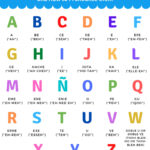Delving into the world of timeless melodies, we explore “True Love Ways,” a song inextricably linked to the legendary Buddy Holly. As part of our series celebrating all-time favorite songs, we shine a spotlight on this classic, appreciating its enduring beauty and Holly’s masterful performance. Like many music enthusiasts, I often find myself humming tunes, and certain songs trigger an instant recognition: “That’s absolutely one of my all-time favorites!” My taste spans genres and eras, embracing both well-known hits and hidden gems, from the grandeur of Broadway to the simplicity of country roads, from heartfelt ballads to energetic rock anthems.
This exploration invites you to journey with me through the contenders for my personal greatest songs, and hopefully, inspire you to reflect on and share the songs that have formed the soundtrack of your life – your own personal songbook.
“True Love Ways” stands out as a quintessential Buddy Holly song, celebrated for its captivating melody, poignant orchestration, and showcasing Holly’s distinctive vocal talent. Its universal appeal is evident in the countless heartfelt cover versions recorded across decades by diverse artists.
This iconic track emerged from Buddy Holly’s final recording session on October 21, 1958, a mere four months before his untimely passing. Held at Decca’s Pythian Temple studio, this session also produced two other Holly gems: “It Doesn’t Matter Anymore” and “Raining in My Heart.” This period hinted at a shift in Holly’s musical direction, moving from upbeat rock and roll towards more melodic, slower compositions enriched with orchestral arrangements. “True Love Ways,” however, wasn’t released until March 1960, as part of the posthumous album, The Buddy Holly Story, Vol. 2.
Notably, the songs from this October 1958 session marked the first time Holly collaborated with a full orchestra. Conducted and arranged by Dick Jacobs, the orchestra comprised accomplished musicians, many of whom were former members of the NBC Symphony Orchestra. The rich instrumentation included eight violins, two violas, two cellos, guitar, bass, piano, harp, saxophone, and drums. Abraham “Boomie” Richman, a seasoned saxophonist from the Tommy Dorsey and Benny Goodman orchestras, delivered the song’s memorable saxophone solos.
The personal touch behind “True Love Ways” adds to its emotional depth. Buddy Holly penned it as a wedding gift for his wife, Maria Elena Santiago Holly. Their meeting was a chance encounter at the Peer-South Music publishing offices in New York City’s Brill Building. Buddy was immediately smitten, asking Maria out on the spot. Remarkably, he proposed on their very first date, June 19, 1958, and they married just two months later on August 15.
Tragedy struck during Holly’s “Winter Dance Party” tour in the upper Midwest in January-February 1959. He chartered a small plane to travel with bandmates Waylon Jennings and Tommy Allsup from Mason City, Iowa, to Moorhead, Minnesota, via Fargo, North Dakota. Fatefully, Allsup and Ritchie Valens flipped a coin for a seat on the plane – Valens won. Jennings then gave up his seat to J.P. Richardson (“The Big Bopper”). Shortly after 12:55 AM on February 3, 1959, pilot Roger Peterson took off despite adverse weather conditions. The plane crashed in a cornfield near Mason City airport, claiming the lives of all on board: Holly, Valens, Richardson, and Peterson. This devastating event became immortalized as “the day the music died” in Don McLean’s 1971 anthem, “American Pie”.
Buddy Holly’s influence on music is undeniable. He is widely recognized for establishing the quintessential rock band setup: two guitars, bass, and drums. His legacy resonates deeply within rock and roll history.
The impact of Buddy Holly song extended to future music icons. John Lennon and Paul McCartney witnessed Holly’s television appearance on Sunday Night at the London Palladium. Captivated, they studied Holly’s records and stage presence, modeling their early performances after his style. Lennon’s initial band, the Quarrymen, even covered “That’ll Be the Day” during their first recording session in 1958. Inspired by Holly’s band, The Crickets, they ultimately named themselves The Beatles. Paul McCartney now holds the publishing rights to Buddy Holly’s extensive song catalog, a testament to his enduring admiration.
Bob Dylan witnessed Buddy Holly perform on his final tour at the Duluth National Guard Armory, just two nights before the fatal plane crash. Dylan recounted standing incredibly close to Holly, feeling a profound connection. Mick Jagger of The Rolling Stones saw Buddy Holly perform “Not Fade Away” during a UK tour. Keith Richards, also of the Stones, drew inspiration from the same song, shaping his early guitar work in its style. The Rolling Stones went on to record a hit version of Holly’s “Not Fade Away” in 1964, further cementing his influence.
Do you remember Buddy Holly and the poignant era of “the day the music died”? His music, especially “True Love Ways,” continues to touch hearts.
Notable Releases and Versions of “True Love Ways”:
- Buddy Holly (recorded 10/21/58, released March, 1960)
- Bobby Vee (1963)
- Frank Ifield (1964)
- Peter & Gordon (1965)
- Tommy Allsup (1965) – instrumental
- Skeeter Davis (1967)
- Gary Busey (1978) – The Buddy Holly Story soundtrack
- Mickey Gilley (1980)
- Tommy Cash (1982)
- Cliff Richard (1983)
- Rick Nelson (1986)
- Johnny Mathis (1989)
- Good Rockin’ Tonight (1992)
- The Mavericks (1996)
- Willie Logan (1996) – instrumental
- Erasure (2003)
- The Charades (2004) – instrumental
- Martina McBride (2005)
- Aaron Watson (2006)
- Jackson Browne (2011)
- My Morning Jacket (2011)
- Military Wives (2012) – choral
- Francoise Hardy (2016)
Come back in two weeks for the next installment of “My All-Time Greatest Songs”! In the meantime, immerse yourself in the beauty of “True Love Ways” and explore the diverse interpretations of this timeless song!

